[DIGITAL Business Africa] – The Minister of Finance of Cameroon, Louis-Paul Motaze, president of the National Economic and Financial Committee (NEFC) of Cameroon, officially launched the first edition of the NEFC Scientific Days on the digital economy. It was yesterday, Thursday, April 6, 2024, at the Mont FEBE hotel in Yaoundé.
During this meeting, he indicated that one of the critical factors in the success of the digitalization of the Cameroonian financial system is improving the regulatory framework, which can unleash competition between digital financial services and other innovative financial services.
This meeting ends today and is organized by the NEFC on the theme: “Transformations of the financial system through digital innovations: challenges and perspectives for Cameroon”. The minister hopes that during this first edition of the scientific days, eminent experts from Cameroon and elsewhere will analyze the impact of regulation and the challenges of digital innovations in the financial sector, internationally and in Cameroon.
Digital Business Africa offers you the minister’s complete speech at the opening of this event.
“Madam Minister of Posts and Telecommunications;
Your Excellency, Ambassador of the United States;
Mr. Resident Representative of the United Nations Development Program (UNDP);
Madam Representative of the United Nations Capital Development Fund (UNCDF);
Dear CEOs of Credit Establishments;
Distinguished guests,
I am honoured to address you at the opening of the first edition of the Scientific Days on the digital economy of the National Economic and Financial Committee (NEFC). During this, subjects of great importance for the future of our country will be discussed, namely the transformations of Cameroon’s financial sector in connection with digital innovations.
First, I express my gratitude to the American Cooperation for its multifaceted support to the CNEF for the success of this event. I would also like to thank the United Nations Development Fund (UNCDF) for its partnership in the organization of these scientific days.
We are very grateful for your support and hope to be able to count on your support in implementing the recommendations of this work.
Also read:
The urgency of regulations on the protection of personal data in Cameroon
Ladies and gentlemen,
The financial sector plays a crucial role in the economic development of a nation. It enables channelling savings into investment, financing businesses and households, and facilitating trade. A solid and efficient financial sector is essential for sustainable and inclusive economic growth.
Over the past two decades, the rapid growth of digital technologies has significantly contributed to creating wealth and improving the well-being of populations worldwide.
According to the World Bank, the digital economy already represents nearly 20% of global GDP and is expected to exceed 25% in less than seven years.
However, this contribution is much lower in developing countries.
In Cameroon, the digital economy’s contribution to GDP remains modest, around 5%, according to MINPOSTEL. Qualitative and quantitative inadequacies in infrastructure and human capital explain this delay.
Although we can consider that this pace is slow compared to its potential and the evolution observed in other countries, the Cameroonian financial system has gradually transformed thanks to the use of digital innovations, mainly digital payment technologies.
One of the most inclusive is Mobile Money, which allows populations to access various services, such as money transfers, online payments, microcredits and others. Of course, efforts remain to make it more inclusive in Cameroon.
Indeed, one of the significant challenges in the Cameroonian financial system is that of significantly raising the level of financial inclusion of the population, which remains low in our country.
According to a study conducted jointly by the CNEF and the World Bank, only 35% of adults have an account in a financial institution in Cameroon, compared to an average of 43% in Sub-Saharan Africa.
Additionally, only about 11% of adults have access to savings services at formal financial institutions, compared to 27% in Sub-Saharan Africa.
In this context, the transformations of the Cameroonian financial system through digital innovations represent an essential opportunity to promote financial inclusion and more vigorous economic growth.
Ladies and gentlemen,
Less than a week ago, I launched on behalf of Cameroon, in my capacity as president of the National Economic and Financial Committee, the National Financial Sector Development Strategy (SNDSF) for the period 2024-2030.
One of the critical factors for the success of this strategy is to improve the regulatory framework and unleash competition between digital financial services and other innovative financial services.
Therefore, this first edition of the scientific days comes at the right time. The eminent experts from Cameroon and elsewhere gathered here will analyze the impact and challenges of digital innovations in the financial sector, internationally and in Cameroon.
Although digital innovations present an opportunity for a more inclusive financial system, it is also worth emphasizing that they open the way to new risks, which need to be identified and prevented.
Without being exhaustive and for illustration purposes, customer data is today a gold mine. However, sharing it exposes customers to risks such as malicious attacks or hacking of bank and electronic accounts. Similarly, generalizing innovative technologies in the financial sector encourages speculative behaviour that can disrupt the economic system and lead to crises.
Finally, specific social, economic and cultural barriers limit access and familiarization with digital financial services and deepen the divide
digital to particular segments of the population, notably women and rural areas.
I do not doubt that the strong expertise mobilized during these scientific days on the digital economy will make it possible to identify these risks exhaustively, as well as the responses to be provided by the Government at the regulatory and technological levels.
Ladies and gentlemen,
This work will produce a draft “agenda for the digital transition of the Cameroonian monetary sector, in addition to the Project to Accelerate Digital Transformation in Cameroon (PATNUC) supported by the Government through the Ministry of Posts and Telecommunications.
Indeed, Cameroon does not want to be left behind. By emphasizing the digital transition of the national monetary sector, the Government wishes to align it with the radical evolution of the global financial industry.
I hope that the five workshops around which these two days of exchanges and debates will be structured will contribute to identifying measures and developing an action plan to achieve this objective.
With this, I declare open the first edition of the SCIENTIFIC DAYS ON THE DIGITAL ECONOMY OF THE NATIONAL ECONOMIC AND FINANCIAL COMMITTEE OF CAMEROON.
Thank you. »








